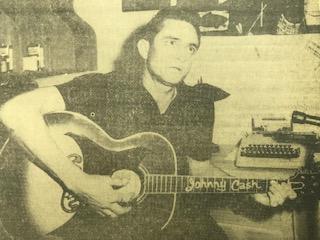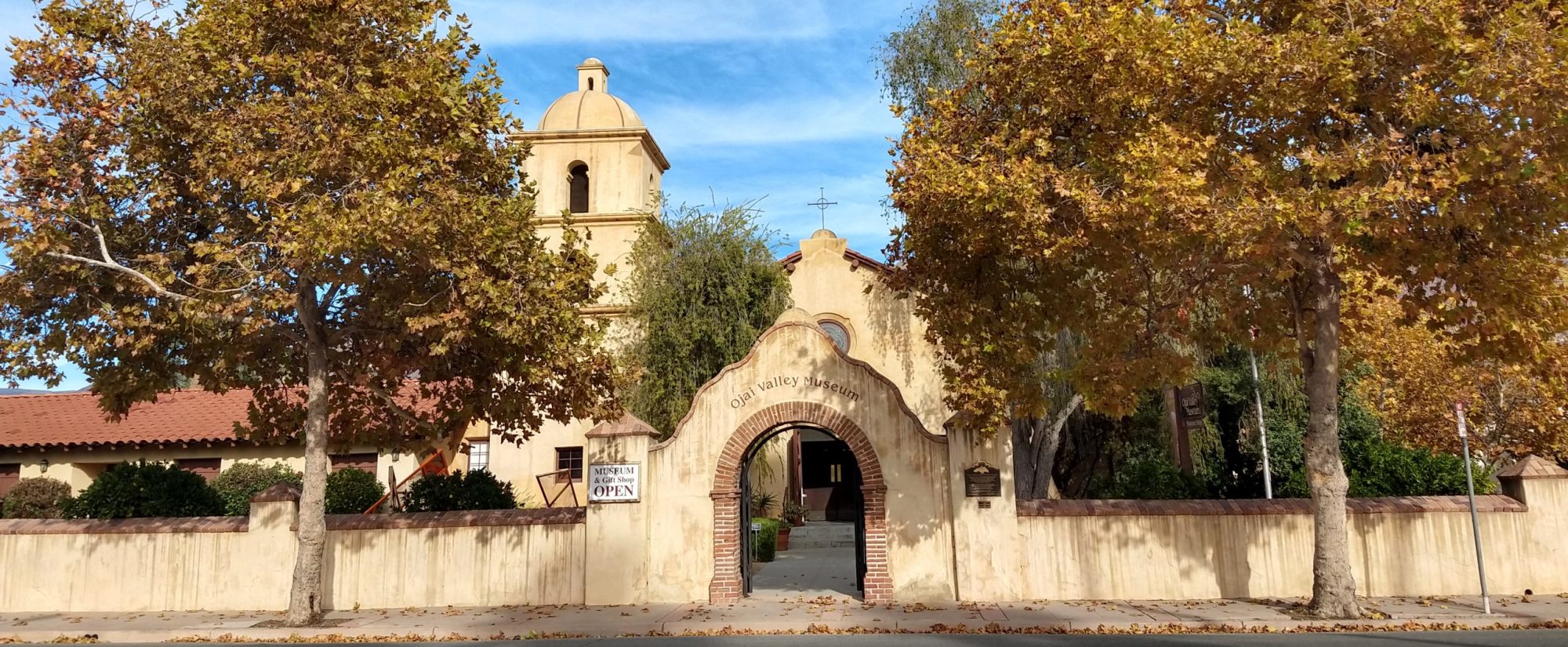The following article was first seen in the Thursday, February 8, 1962 edition of “THE OJAI VALLEY NEWS” on the front page. It is reprinted here with their permission.
TINKLE, TINKLE
Cash rings register
by
HANK PEARSON
On May 10 next several hundred people will be crowding into New York’s famed Carnegie hall to listen to a tall, dark haired handsome young man from Ojai valley as he sings many of his songs that have led to his being called America’s Number One country singer.
That man will be Johnny Cash, a man less than ten years ago was totally unknown in the world of music, but who today has become recognizes as one of the country’s leading mail vocalists in the field of folk songs and religious hymns, as well as a top-notch composer.
Johnny Cash has lived for the year in a beautiful home located on a hillside overlooking the Ojai valley, above Casitas Springs. With him are his attractive wife, Vivian, and the couple’s four daughters, Rosanne, 6, Kathleen, 5, Cindy, 3 and Baby Tara, five months.
Johnny’s appearance at Carnegie Hall is a tribute to the 29-year-old singer’s excellent rendition over the past several years of songs that are typically American – songs that have their roots deep in the soil of the country’s past.
Most of the people in America today are well aware of Johnny’s musical performances. He composed and introduced such songs as “I Walk the Line”, which sold well over two million records; “Folsom Prison Blues”, which did almost as well; “Ballad of a Teen-Age Queen”, and a host of others. His religious albums have been instant hits. He has made many personal tours, both in this country and abroad. He has made many guest appearances on television and twice has been name America’s number one country singer. The list goes on and on.
In spite of such successes, however, Johnny Cash is not by any stretch of the imagination overly concerned with his own importance. He is a devoted family man, loves to hunt and fish; and beneath his quiet and composed mien one senses a deep reverence.
Johnny grew up on his parent’s 20-acre cotton farm in a rather remote area near Pine Bluff, Ark. (His parents now operate a trailer court near Casitas Springs.) It was not an easy life and Johnny can still recall vividly the days he spent behind a mule plowing the fields and the endless hours he spent picking cotton. With four boys and three girls in the family, and the pall of a depression over the land, there was never anything but three meals a day – and often that consisted only of beans and bread.
But it was during those days that Johnny started to sing – mainly to himself – and to make up songs as he did his chores. It was there, too, that he became thoroughly acquainted with folk songs – songs that had drifted down through the years from one person to another, without benefit of the published word.
Johnny’s break came in 1955 and for two reasons: first, of course, he had a natural talent that wished to express itself, and second, because he was about the worst salesman in the country.
Johnny had been married then just a short time – following a four-year hitch in the Air Force – and had taken a job as a salesman in San Antonio, Tex. His job was one of those door-to-door varieties and no matter how many doors he pounded on, no one seemed a bit interested in buying. He had to do something or face the dismal prospect of not having anything to eat for either himself or Vivian.
Armed with a song of his own composition entitled “Hey Porter”, he headed for Memphis, Tenn., and a newly formed recording company by the name of Sun Record company. He didn’t get much past the front door. But he didn’t give up. Several months later he came back and this time luckily, the owner, a gentleman by the name of Sam Phillips, was having a coffee break.
After considerable pleading on the part of Johnny, Sam condescended to listen to the song. He like it, later put it on wax, and Johnny had his start. Sun Records, by the way, had a pretty good start then with another lad – by the name of Elvis Presley.
For years now Johnny has had three musicians with him: a guitarist, a bass player and a drummer. They all have one thing in common with Johnny – none of them can read a note of music.
Not being able to read music has not hindered Johnny because things work out satisfactorily these days in reverse anyhow. Johnny can think up a melody and the lyrics that go with it while, for instance, puttering around his Ojai valley home. He then puts it down on tape in a small music room he has and the proper notes are put down on paper afterward.
When I visited Johnny this week he had just thought up a melody and most of the words for a song entitled “Lost on the Desert.” It was a sad but beautiful ballad – typical of the old folk songs that were sung over campfires years ago or on the front porch of a farm house in the still of a summer evening.
He is also working on a song concerning a disastrous flood; this one from memory of an event which occurred on that small cotton farm when he was a boy. Like he says, these songs just sort of “come to him.”
He will have the big opportunity on May 10 to show people just what he means.

